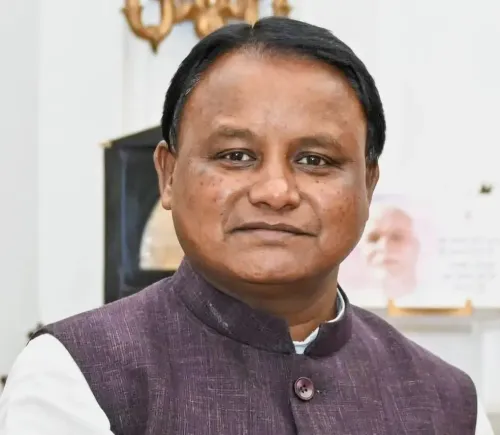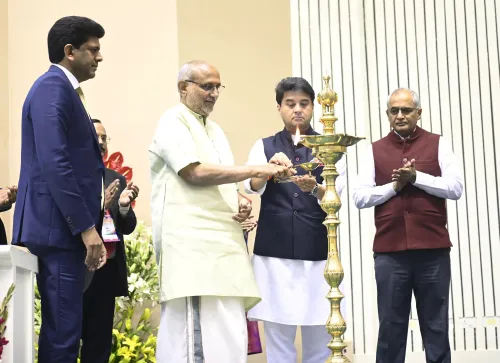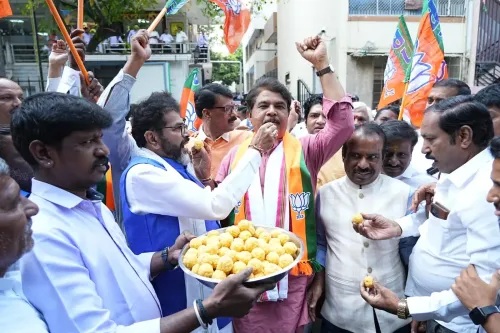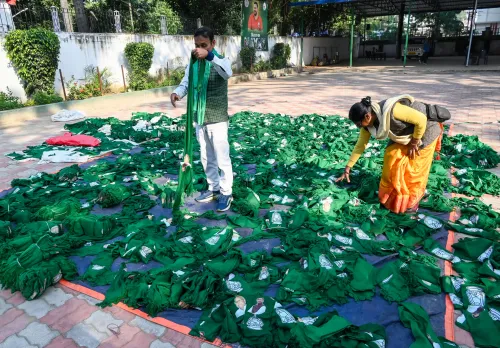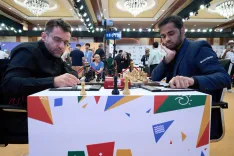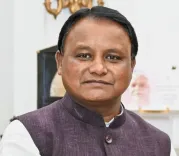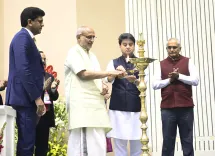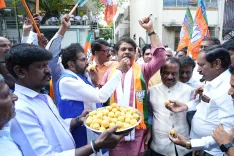Did Naresh Meena Shift the Political Landscape in Rajasthan's Anta Bypoll?
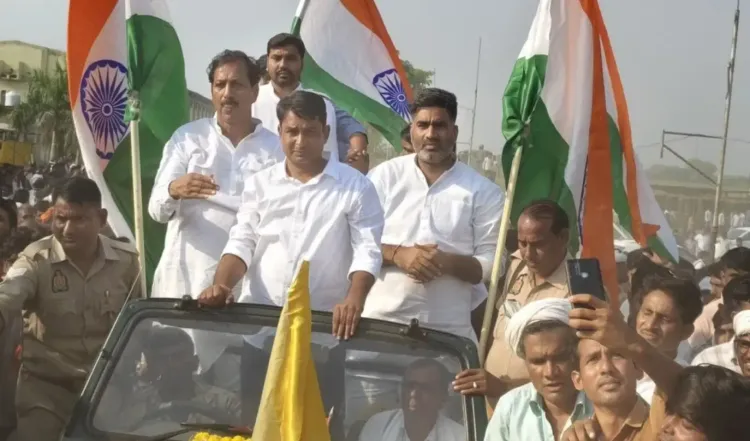
Synopsis
Key Takeaways
- Congress's unity was pivotal in reclaiming the Anta seat.
- Naresh Meena emerged as a significant independent candidate.
- The BJP's internal strife was evident during the campaign.
- Voter dissatisfaction played a key role in the election outcome.
- Political dynamics in Rajasthan could shift in future elections.
Jaipur, Nov 14 (NationPress) The Congress party has successfully reclaimed the Anta assembly seat from the BJP, leading to a defeat that raises significant doubts about the ruling party's strategy.
Despite holding power, the BJP was unable to keep the seat, while Congress’s Pramod Jain Bhaya not only overturned his 2023 defeat but won by a margin almost three times greater.
Numerous political dynamics, including internal strife, misjudged caste dynamics, and an underestimated independent candidate, influenced the election's outcome.
While Congress exhibited notable unity, with Ashok Gehlot and Sachin Pilot collaborating, the BJP's appearance of solidarity seemed insincere.
Key local figures, including cabinet ministers Hiralal Nagar and Madan Dilawar, were notably absent from the campaign. Even seasoned politician Kirori Lal Meena was only briefly introduced to attract Meena voters.
On the contrary, Congress remained vigilant against challenges—including the candidacy of independent Naresh Meena—ensuring its vote share remained stable. The BJP underestimated Naresh Meena, dismissing him as inconsequential, yet his campaign significantly influenced the election.
Backed by RLP’s Hanuman Beniwal and Rajendra Singh Gudha, Naresh capitalized on voter dissatisfaction. His ability to garner support from Meena, Dhakad, and even Rajput voters directly undermined the BJP's stronghold. Large crowds at his rallies, coupled with anti-establishment feelings, positioned Naresh Meena as a pivotal player—one that the BJP failed to foresee.
Moreover, internal conflicts hampered the BJP’s campaign from the beginning. The delay in candidate announcement showcased confusion and rivalry.
Sources indicate that former Chief Minister Vasundhara Raje initially pushed for the candidacy of Kanwar Lal Meena’s wife, but issues of nepotism halted that plan. She then backed former MLA Prabhulal Saini, but no agreement was reached.
Ultimately, local leader Morpall Suman was selected—not a favored choice among many in the party. Despite these challenges, Raje and her son, MP Dushyant Singh, campaigned vigorously. Their involvement turned the election into one tied to Raje’s reputation.
Even CM Bhajan Lal Sharma joined her in joint rallies. But despite this high-profile effort, voters remained unmoved. One of the campaign’s most puzzling elements was the exclusion of two influential Hadoti leaders—Madan Dilawar and Hiralal Nagar, both from Baran district and well-connected locally.
Sources suggest they were sidelined due to their perceived allegiance to another senior Hadoti leader, hinting at internal power struggles within the BJP.
Even veteran MLA Pratap Singh Singhvi did not play a visible role. When questioned about their absence, BJP state president Madan Rathore provided an ambiguous response, stating that campaign roles were assigned according to the candidate's needs.
Naresh Meena entered the race after conflicts with Congress, and it was initially believed he would siphon off votes from Congress. Although Congress was cautious, the BJP leadership perceived him as insignificant.
This misjudgment proved costly for the BJP. Naresh, alongside Beniwal and Gudha, effectively drew discontented voters from both parties. His incisive critiques, charismatic rallies, and alignment with local grievances broadened his appeal beyond expectations.
In Rajasthan, the Meena community typically supports the BJP. Yet, Cabinet Minister and Meena leader Kirori Lal Meena’s involvement was largely symbolic and lacked vigor.
Analysts suggest that his active engagement could have countered Naresh Meena’s impact. However, sensing the public sentiment and perhaps internal dynamics, Kirori Lal refrained from fully investing his political clout in the campaign.
Congress’s internal cohesion was crucial. Despite their well-known rift, Gehlot and Pilot jointly rallied behind Bhaya, avoiding any public discord.
Political commentators point out that while the BJP entered the by-election as the favored contender, given their hold on the seat, the results revealed deep factionalism within the BJP contrasted with visible unity in Congress.

